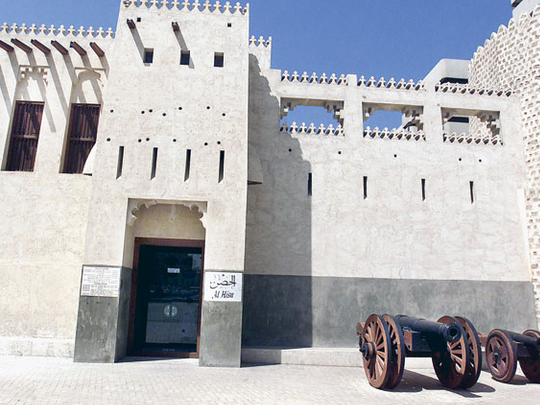
Dubai: Historic records have a lot to say about Sharjah, the third largest emirate in the country.
In its early days the emirate had a modest population and its natives mainly relied on humble professions such as trade, farming, hunting, fishing and pearling for their livelihoods.
In 1507, the Portuguese took charge of the East Coast to take control of the spice trade and building forts at Sharjah's districts such as Khor Fakkan, Kalba and Dibba. The reign of Portuguese lasted a century.
The subsequent hundred years was marked by the emergence of British control in the emirate.
The British started trading with Al Qawasim, the tribe of the current ruling family.
Al Qawasim family
In the 18th century, Al Qawasim became powerful mariners who developed crucial maritime power in the southern Gulf. Their strongholds were based in Ras Al Khaimah and Sharjah.
Shaikh Sultan Bin Saqr Bin Rashid Al Qasimi, the forefather of today's emirate's rulers became the governor of Sharjah in 1804 and his reign extended more than 50 years.
The relationship between the British and Al Qawasim encountered some difficulties which made the two parties battle one other.
Following various battles, the first of several peace agreements was signed in 1820. This guaranteed peace at sea and protection of the British for 150 years.
Sharjah was the base for Britain's political representative on the Trucial Coast from 1823 to 1954.
The first organised school in the UAE was established in Sharjah in 1953. This attracted Emirati students throughout the country.
The areas known as Trucial Oman and the shaikhhdom known as the Trucial States remained named as such from 1853 until the official foundation of the United Arab Emirates in 1971.
The emirate remained the regional base for the British and Trucial Oman Scouts until British control ended in 1971. That same year, it joined the United Arab Emirates as a founder member on December 2.
Oil
Soon oil was discovered in the Mubarak field in Sharjah 80 kilometres offshore, near the island of Abu Mousa.
A few years later the production began. At its peak 35,000 barrels were produced per day. Gas condensate drilling began in 1990.
The long-term vision of His Highness Dr Shaikh Sultan Bin Mohammad Al Qasimi, Supreme Council Member and Ruler of Sharjah, who has ruled the emirate since 1972 has contributed significantly to the development of the emirate.
He has also worked to make Sharjah a cultural capital among the emirates.
Dr. Shaikh Sultan proudly protects the identity of the emirate and has made the city recognised as an area of great Islamic heritage.







